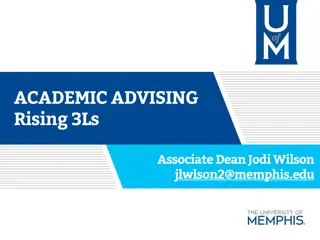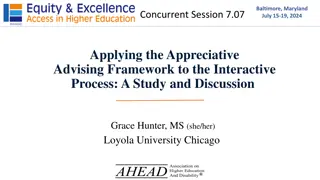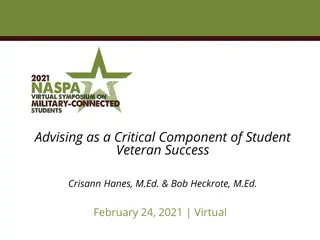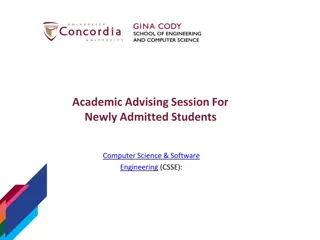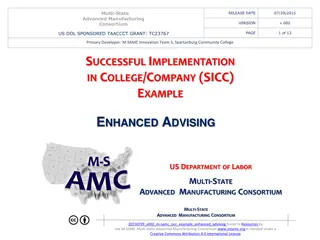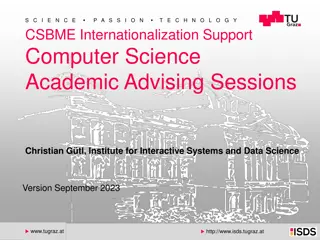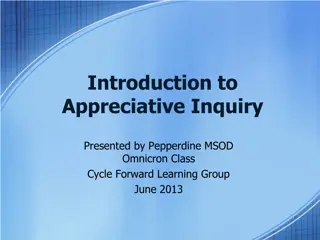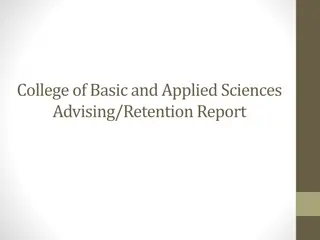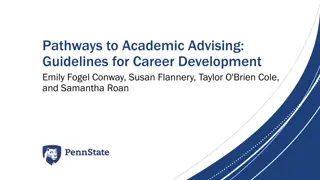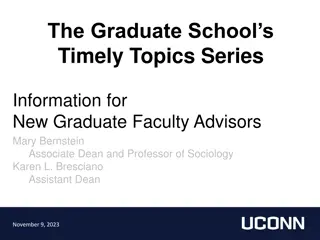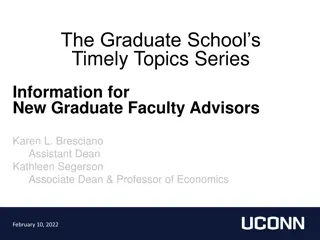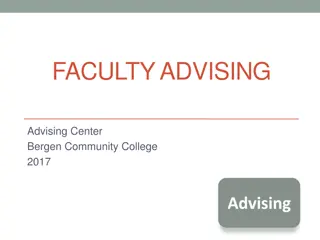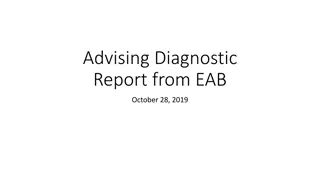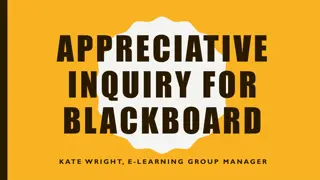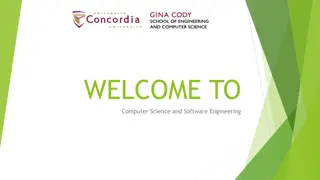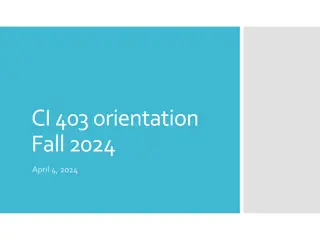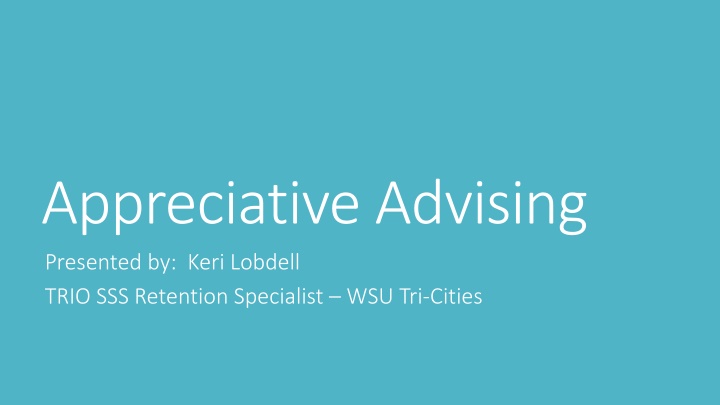
Enhancing Academic Support Through Appreciative Advising Methods
Discover the principles and stages of appreciative advising, a positive and collaborative approach that empowers students to achieve their goals and potential. Learn how to create a welcoming environment, ask empowering questions, and guide students in formulating their vision and goals for the future.
Download Presentation

Please find below an Image/Link to download the presentation.
The content on the website is provided AS IS for your information and personal use only. It may not be sold, licensed, or shared on other websites without obtaining consent from the author. If you encounter any issues during the download, it is possible that the publisher has removed the file from their server.
You are allowed to download the files provided on this website for personal or commercial use, subject to the condition that they are used lawfully. All files are the property of their respective owners.
The content on the website is provided AS IS for your information and personal use only. It may not be sold, licensed, or shared on other websites without obtaining consent from the author.
E N D
Presentation Transcript
Appreciative Advising Presented by: Keri Lobdell TRIO SSS Retention Specialist WSU Tri-Cities
Learning outcomes: 1.) Intro to Appreciative Advising six stages it involves 2.) Take away ideas to implement Appreciative Advising in your practice
What is appreciative advising? Academic advising framework developed by Jennifer Bloom The Appreciative Advising Revolution (Bloom, Hutson and He, 2008) Appreciative Advising is the intentional, collaborative practice of asking positive, open-ended questions that help students optimize their educational experiences and achieve their dreams, goals and potentials.
Appreciative advising High impact advisors realize that the positive outcomes of advising sessions are not just limited to students; in fact, the real joy of advising occurs when advisors understand how fulfilling it is to really impact other people s lives and how much they learn from their advisees. - Jennifer Bloom
Disarm: phase 1 It s all about first impressions! Create a safe and welcoming environment Do you greet students? How do you do it? Creating trust/build rapport What does this look like? Verbal and nonverbal behaviors Setting the foundation for future connections
Office Set-ups How is your office set up? Is it conducive to this first impressions intentional greetings? If not is there a way to work with your office set-up? What would that look like?
Discover: Phase 2 Ask open ended questions Positive Find: Strengths, skills, passions, and accomplishments Active listening!
Dream: phase 3 Condition that is longed for .. Help formulate a vision Assist in developing life and career goals Encourage being open to the possibilities
Design: phase 4 Create a plan of action Help devise concrete, incremental, and achievable goals Establish a realistic timeline Who is responsible for what and when
Deliver: phase 5 Getting it done! (with help) Students follow through Advisors help when they stumble, believe in every step, and help update and refine dreams Energize to be their best
Hi XYZ , I am sending you this email based off of our conversation today during our meeting. I hope that you found it to be helpful and that all of your questions were answered and concerns listened to. My hope is that you get as much out of our meetings together as I do. Below I have highlighted what we talked about and bullet points indicate action items for you, for me, or for both of us. If you see anything that I ve missed or have recorded incorrectly, please let me know and I will update the information. Getting it done - It is of course up to the student to do the things they need to do, but it helps me remember what I m doing and gives me a reference for the next time we meet or as a follow up contact. Today we spoke about Action items: This week This month By our next visit - Please let me know if you have any questions or need to meet further. Warmest Regards - Keri
Dont settle: Phase 6 Setting the bar Challenge students to proactively raise their internal bar The power of high expectations Challenge and support
Lets talk How do you see yourself, your program using this model? What are you already doing? What could you add?

